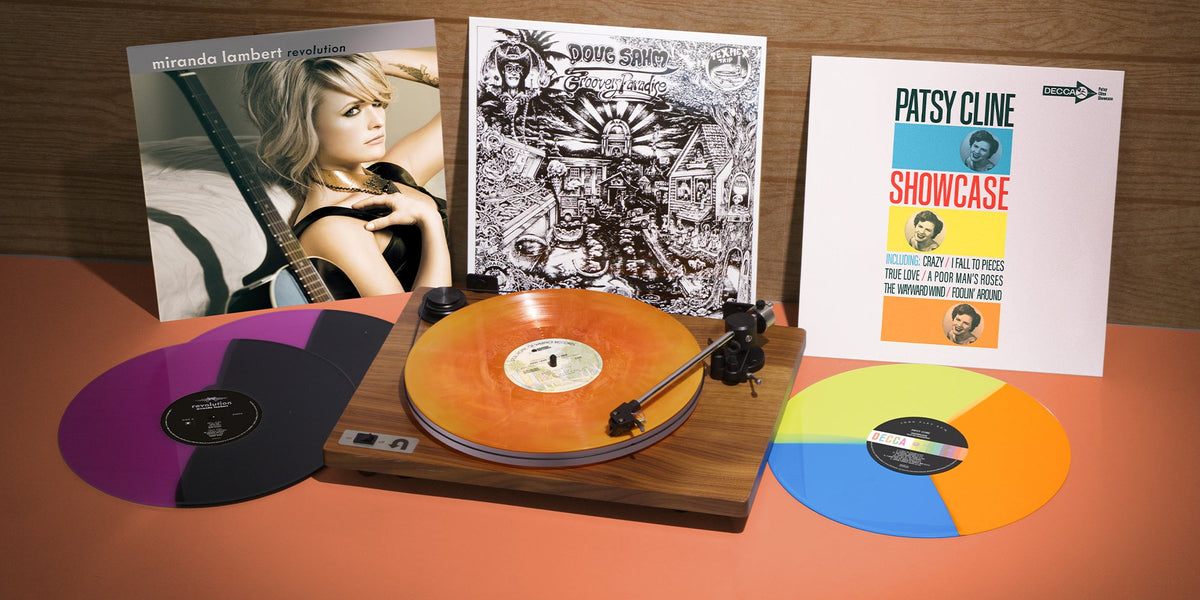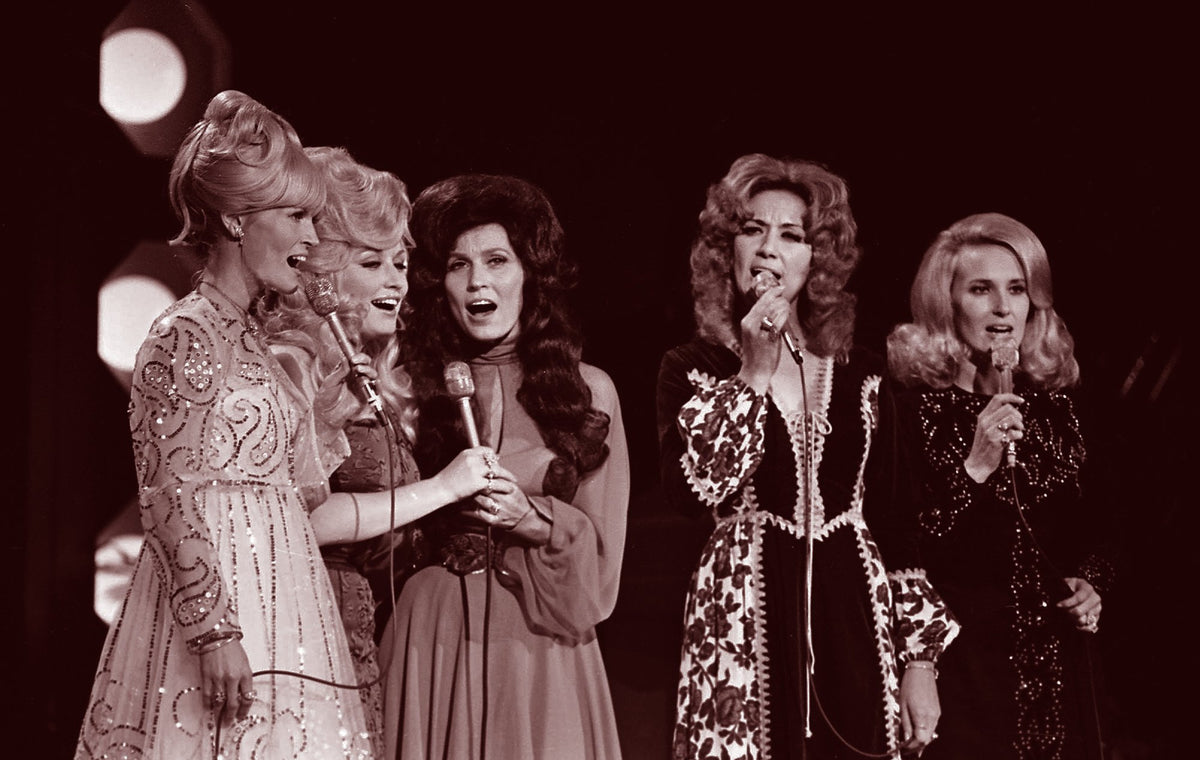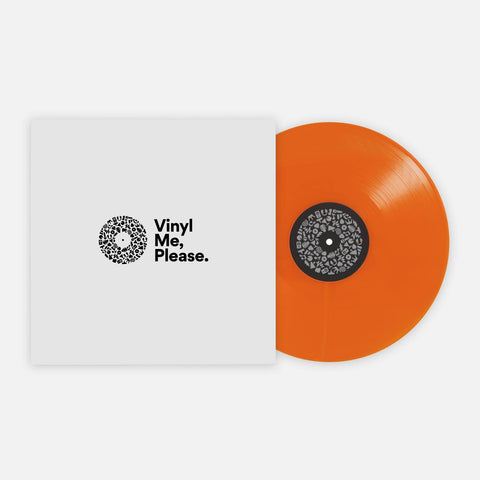Patsy Cline’s Hit-Stacked ‘Showcase’
On the record that established her as royalty within the country music canon
Short careers typically aren’t the stuff of legends. Most of our musical icons, living or otherwise, earned that status after decades of honing their craft and building an audience, with a small handful — think Otis Redding, who died at 26 in 1967, or Jimi Hendrix, who joined the “27 Club” in 1970 — burning so fast and so bright that even the briefness of their output can’t temper the longevity of their music. Tragically, Patsy Cline is one of those latter artists, having died in a plane crash at the age of 30. Her death came less than a year after the release of her third studio album, 1962’s Sentimentally Yours, and just six years after her 1957 self-titled debut album put her squarely on the radar of country and pop fans alike. Like Redding and Hendrix, Cline possessed a natural brilliance; her particular brand of brilliance lent her music — paradoxically, perhaps — a sense of timelessness and served as a crystalline snapshot of a pivotal moment in country music, a genre that would grow wildly in popularity in the coming years and decades.
It's fair to say, then, that on March 5, 1963, country music lost a piece of its soul. Cline, along with fellow artists Cowboy Copas (the stage name of Lloyd Estel Copas) and Harold “Hawkshaw” Hawkins, as well as pilot (and Cline’s manager) Randy Hughes, died when their plane went down 90 miles outside of Nashville. The event forever altered the trajectory of country music. Cline was just nearing the peak of her powers when she died, leaving countless “what-ifs” in her wake. No stranger to tragedy, Cline — who had performed a benefit concert in Kansas two nights before her death — told friends, including confidant and fellow artist Loretta Lynn, that she thought she was nearing the end of her life, and that she knew her time on earth would be short. The final song Cline ever performed live — the closer of her set at that Kansas benefit concert, which honored the family of the late country DJ “Cactus” Jack Call — was hillbilly boogie king Moon Mullican’s “I’ll Sail My Ship Alone.” It’s a song about forgetting a wayward lover that appears in recorded form on Cline’s 1980’s posthumous release Always. One lyric presciently reads, “I’ll sail my ship alone with all the dreams I own / Drifting out across the ocean blue,” almost as though Cline were saying goodbye.
Virginia Patterson Hensley was born on September 8, 1932, in Winchester, Virginia, a small town on the border of Virginia and West Virginia. Her father, Samuel Lawrence Hensley, was a blacksmith and an amateur singer; Cline said that her father sexually abused her when she was a child, and he abandoned the family in 1947. Hilda Virginia Hensley, Cline’s mother, was only 16 when Cline was born; the two would often sing duets in church when Cline was a young teenager. As Ellis Nassour writes in his 1993 biography, Honky Tonk Angel: The Intimate Story of Patsy Cline, Cline and her mother were very close, with the elder Hensley saying that the two were “more like sisters,” an unconventional dynamic likely due to their proximity in age. Cline never finished high school, dropping out to take on odd jobs in the wake of her father’s absence.
Those early church performances came after another formative near-tragedy in Cline’s life. When she was 13, she contracted a throat infection and rheumatic fever, an event that changed the texture and quality of her voice. As Nassour writes in Honky Tonk Angel, Cline later told an interviewer, “The fever affected my throat and when I recovered I had this booming voice like Kate Smith’s.” While Cline didn’t know it at the time, that contralto voice would catapult her to country stardom. And what a voice it is. Cline’s is one of the most celebrated voices in all of music, with the natural virtuosity of her otherworldly performances able to imbue even the most pedestrian of songs with deep emotion, so much so that it’s easy to forget Cline wasn’t known as a songwriter. But her voice was the kind that staked permanent claim over whatever she sang.
Church performances led to radio appearances and talent show competitions, with Cline, at 15, writing to the Grand Ole Opry in hopes of an audition. When the late Wally Fowler, of Oak Ridge Boys fame, happened to hear Cline at a concert in Winchester, she auditioned for him, and the Opry agreed to see her. The rest is history, one might assume, but that Opry audition — despite the great lengths Cline and her family went to attend it — didn’t pan out. It wasn’t until the early 1950s that Cline found an outlet for performing, joining Bill Peer’s Melody Boys & Girls and performing regionally with the group. It was then, at Peer’s urging, that Cline dropped Virginia Hensley and began performing as Patsy Cline — “Patsy,” short for her middle name, Patterson, and Cline the last name of her first husband, Gerald.
Despite that regional touring, periodic television appearances on shows like Town and Country Time and praise from critics, it wasn’t until 1954 that Cline signed her first record deal, with Four Star Records. The label subsequently leased Cline’s recordings to Decca Records, who would release the majority of her catalog. Her early projects with Four Star Records didn’t garner much attention, and it wasn’t until a fortuitous television appearance that she began to see success. In early 1957, Cline performed on Arthur Godfrey’s Talent Scouts, singing “Walkin’ After Midnight” at the urging of show producer and fellow vocalist Janette Davis. The song was an overnight sensation, and Decca rushed to release Cline’s debut LP.
That debut album, 1957’s Patsy Cline, was not a runaway success upon its release, but it did spawn a hit single in “Walkin’ After Midnight.” It also laid the groundwork for her 1961 sophomore outing, Showcase, which would finally bring her true widespread success. Showcase is the second of only three studio albums Cline would release during her lifetime. Three albums — 1964’s A Portrait of Patsy Cline and That’s How a Heartache Begins, and 1980’s Always — were released posthumously. Cline recorded Showcase at Nashville’s Bradley Film & Recording Studios (also known as the Quonset Hut Studio) alongside famed, in-demand gospel quartet, The Jordanaires, known for work with artists like Elvis Presley and Eddy Arnold and producer Owen Bradley, who produced her debut and the remainder of her output.
An early pressing of Showcase touts the success of “Walkin’ After Midnight” — which reprises, in a notably poppier, far less country form, on Showcase after also appearing on Cline’s self-titled debut. It reads, “... the girl from the Shenandoah Valley of Virginia proved that it was not luck alone that skyrocketed her to the top by following it up with hit, after hit, after hit — each one more exciting than the one before.” It later describes Cline as having “that irresistible voice, style and charm that goes right to your heart, and stays there.” While that song no doubt kickstarted Cline’s career in earnest, it was only the slightest glimpse into what Cline was capable of, a phenomenon she may have felt herself, as she initially did not want to record the song at all.
The plane crash that killed her is, understandably, the most talked about tragedy of Cline’s life, but prior to recording Showcase, Cline was also the victim of a car crash in 1961 that almost killed her. On June 14, Cline and her brother were driving in Nashville when they experienced a head-on collision with another car. Two of the passengers in the other car died from their injuries. Nassour writes in Honky Tonk Angel that, upon realizing she would survive, Cline told her second husband Charlie Dick, “Jesus was here, Charlie. Don’t worry. He took my hand and told me, ‘No, not now. I have other things for you to do.’” Heeding that vision, Cline resumed performing live after a month in the hospital, though she did so using crutches, on which she still relied when she recorded one of Showcase’s landmark songs, the Willie Nelson-penned “Crazy.” She expressed feeling physical pain from her injuries during Showcase’s recording sessions, perhaps enhancing the trademark “ache” of her vocal performances.
While Showcase is, indeed, a hit-stacked affair, the album most famously produced the now-classics “I Fall to Pieces” — notably Cline’s first No. 1 country single — and “Crazy,” which, while not as commercially successful as its predecessor, is perhaps the defining song in Cline’s compact but potent catalog. Both songs are inductees to the Grammy Hall of Fame. Elsewhere, the LP features a jaunty version of Bob Wills & His Texas Playboys’ “San Antonio Rose,” with richly layered backing vocals from The Jordanaires and the kind of lush, orchestral arrangement that would come to define the “Countrypolitan” sound. Cline’s take on Cole Porter’s “True Love” is another standout, as the romantic standard offered her ample room to show off her vocal range.
While songs like “Crazy” often overshadow the legacy of the broader Showcase project, the album — in addition to being endlessly listenable, start to finish — is a critical text in understanding Cline’s legacy and her place as royalty within the country music canon. Though it seems Cline didn’t have the degree of creative control she would have hoped for while recording Showcase, the tracks that comprise the album truly do function as the album title implies: Listeners hear not just a proficient singing voice but a visionary artist, one who could wrench a spectrum of emotion from a handful of notes and who performed as though her very life depended on it.
In their acclaimed book Country Music USA, authors Bill C. Malone and Tracey E. W. Laird write, “With the emergence of Patsy Cline, the modern era of women country singers really began,” adding several paragraphs later that “[Cline] had moved female country singing closer to the pop mainstream and lightyears away from the sound projected by Molly O’Day, Rose Maddox, Jean Shepard, and Kitty Wells.” Malone and Laird assert that Cline’s own creative impulses — which, as evinced by her cowgirl attire and natural twang, were country through and through — were at odds with those who controlled her career, who saw a major opportunity for a lucrative pop crossover in Cline. Showcase only encouraged those record executives, making the album not just Cline’s most successful outing, but one that created great tension for her artistry.
1962’s Sentimentally Yours would be the last album released during Cline’s lifetime. Though the album comprised 10 covers and just two new songs, it produced a handful of charting songs, including the No. 1 country hit “She’s Got You.” The success of Sentimentally Yours afforded Cline the most stability she’d ever had, and in the summer of that year — mere months before her death — she purchased her first home in Goodlettsville, just outside of Nashville.
Despite her time in the spotlight spanning less than a decade, Cline’s influence on popular music and culture was and remains considerable. She lives on today through young artists influenced by Cline and through institutions like her childhood home in Virginia — the Patsy Cline Historic House, which offers a glimpse into her early life — and the Patsy Cline Museum in Nashville, the latter of which opened in 2017. There have been a number of film, television and stage projects honoring Cline, including the 1985 film Sweet Dreams and the 1988 musical Always… Patsy Cline. Cline has also earned a number of posthumous accolades, including a 1999 star on the Hollywood Walk of Fame, a 1993 postage stamp commemorating her life and, in what may have mattered most to Cline herself, a 1973 induction into the Country Music Hall of Fame — a feat that made her the first woman to receive the coveted honor.
Over half of a century has passed, and things for women in country music haven’t changed much. Traditional-leaning acts like Margo Price and Kacey Musgraves are kept off country radio (and therefore, country charts), while those more willing to adopt a crossover sound, like the highly decorated Carrie Underwood, have a better chance — though a miniscule one — at becoming a commercial country juggernaut. (It’s also important to note that, while country music has historically shut out women artists, BIPOC artists have suffered the most from unequal representation in the genre.) Young artists who look to Cline as an influence can do so from two distinct, seemingly opposing perspectives: the Cline who ruled the radio waves with lush torch songs, or the Cline who loved to yodel and longed to celebrate her rural roots. Among artists who have cited Cline as an influence are Dolly Parton, Taylor Swift, LeAnn Rimes, Lucinda Williams and many others. In a feature for Rolling Stone, Rimes said of Cline, “I remember my dad telling me to listen to the way she told a story. I remember feeling more emotion when she sang than anyone else I had ever heard.”
Sixty years after the release of Showcase, Patsy Cline remains a pillar of country music; if the genre had a Mount Rushmore, her face would be alongside the likes of Johnny Cash, Ernest Tubb, Charley Pride or Loretta Lynn, to name a handful of similarly influential artists. Her physical presence is long gone, but her artistry lives on, through both the handful of albums we were fortunate enough to receive from her and her profound influence on several generations of country and pop singers. Cline’s career wasn’t typical, because she wasn’t a typical artist. Perhaps the only thing more profound than Cline’s talent was her passion, which is as evident in her recordings now as it was when she stood on a stage. Her headstone, in her hometown of Winchester, says it best: “Death cannot kill what never dies: love.”
Brittney McKenna is a writer living in Nashville. She contributes regularly to many outlets, including NPR Music, Apple Music and Nashville Scene.
Related Articles
Join the Club!
Join Now, Starting at $36Pages







